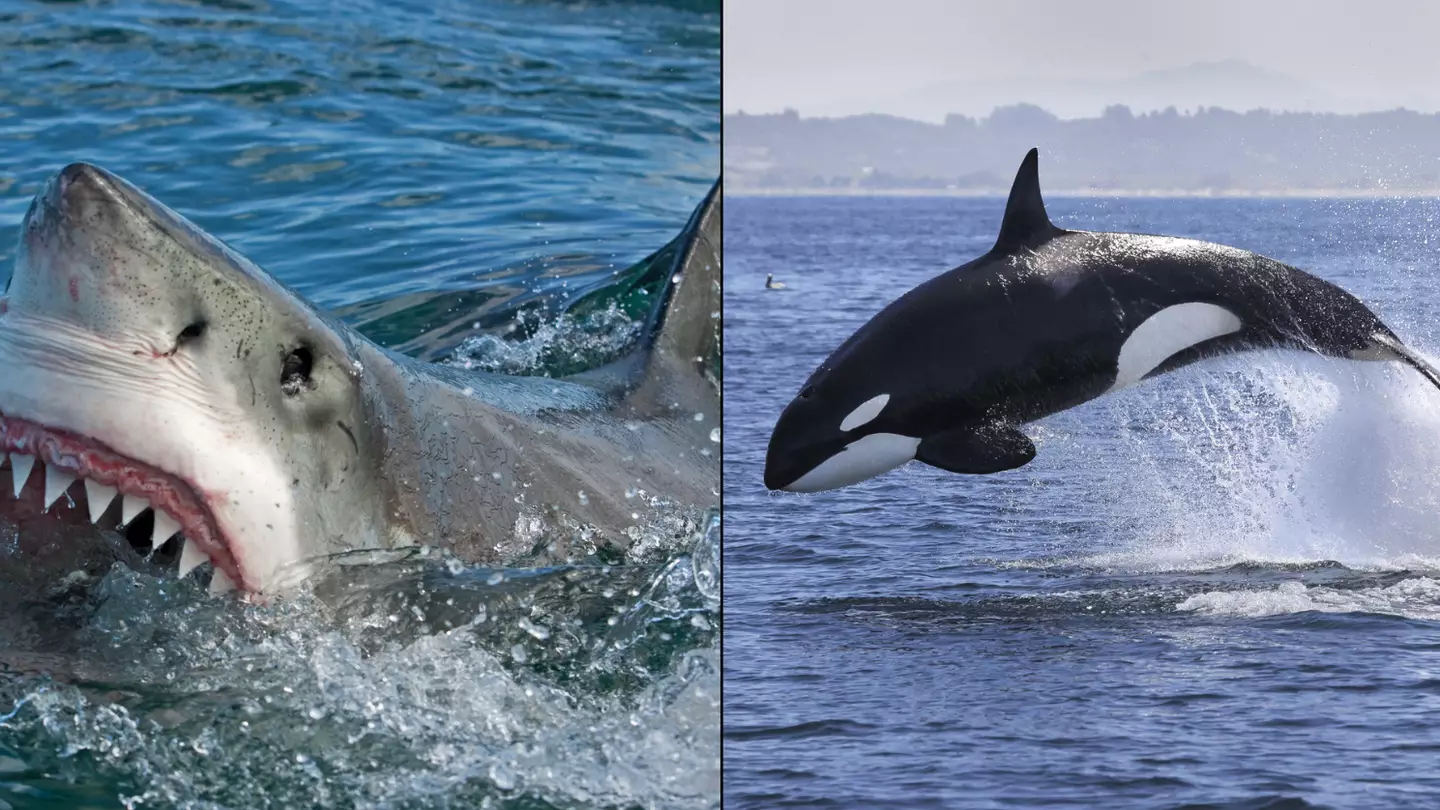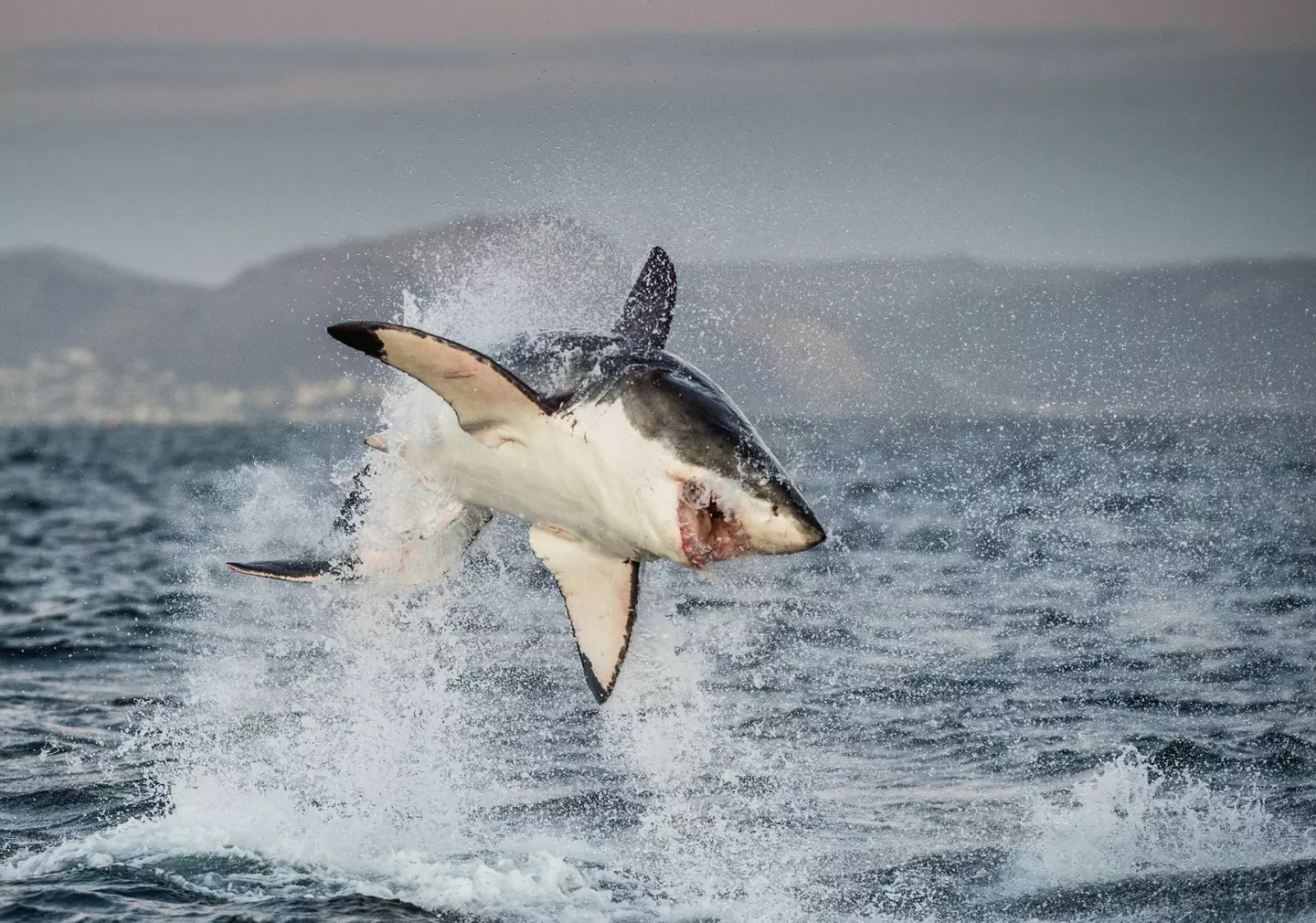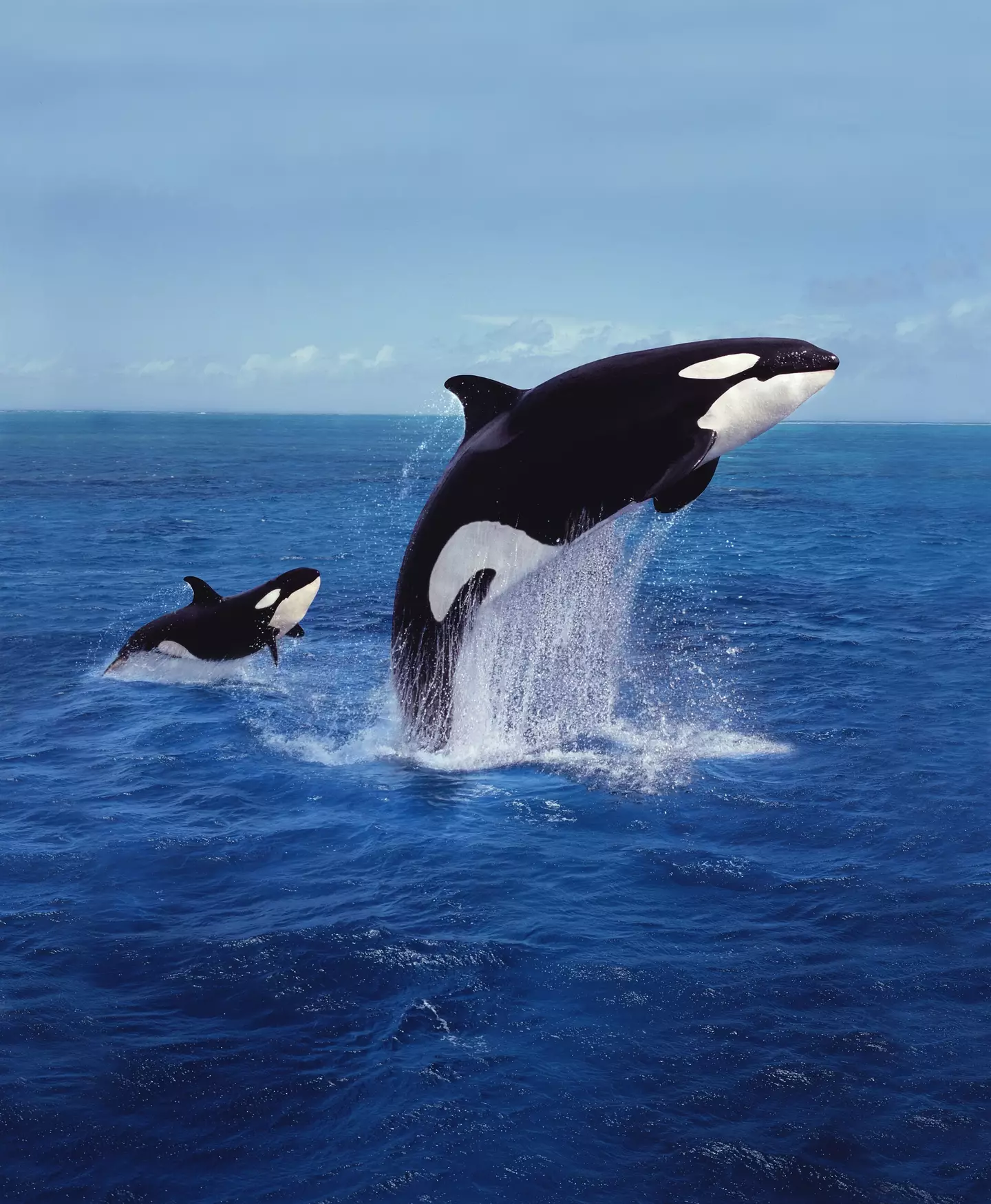
A group of great white sharks have not returned to the patch of South African waters where orcas have been known to rip out their livers. Smart move, fellas.
A pair of male killer whales, known as Port and Starboard, are thought to be behind a string of great white killings and numerous shark carcasses have washed up on South Africa’s shores with their undersides torn apart.
Scientists have said that the change in great whites’ behaviour could totally transform the ecosystem in South Africa.

Advert
Reporting on the new study, The Times notes that it was in 2017 that researchers first spotted signs that orcas might be hunting great whites, when the carcasses of four sharks were found on the beaches of Gansbaai with their livers (which are extremely rich in oil) ripped out.
Alison Towner, a biologist from the Dyer Island conservation trust and the lead author of a new study that examines the impact of orca attacks on great whites, said researchers had never seen anything like it before.
Noting that the sharks were found with ‘big gaping holes’, Towner explained: “They [Port and Starboard] work together and tear the shark open by the pectoral fins, ripping it open.”
Commenting on the ‘mass exodus’ of great whites from the area, Towner added: “What we seem to be witnessing is a large-scale avoidance, mirroring what we see used by wild dogs in the Serengeti in Tanzania, in response to increased lion presence.”
She continued: “The ecosystem appears to be shifting, with smaller predators such as the bronze whaler shark already moving in. The more the orcas frequent these sites, the longer the great white sharks stay away.”
Advert

Towner also touched upon the impact sharks’ behaviour may have on the ecosystem, predicting it’ll be ‘wide-reaching’.
“Balance is crucial in marine ecosystems — for example, with no great white sharks restricting their behaviour, cape fur seals can predate on critically endangered African penguins,” she said.
“There is only so much pressure an ecosystem can take, and the impacts of orcas removing sharks are likely to be wide-reaching.”
Since 2017, eight great whites have washed up in Gansbaai since 2017 after being attacked by killer whales. Seven had their livers removed, and some also had their hearts torn out.
Advert
However, it’s thought that more sharks have likely been killed by orcas and their carcasses have remained at sea.
According to the new study, published in the African Journal of Marine Science, 106 great white sharks were tagged with transmitters in South Africa between 2012 and 2019 and 36 came from the Gansbaai area.
Prior to the 2017 orca attacks, between eight and three sharks were detected via their tags at Gansbaai, but once the first dead shark washed ashore, this dropped to zero.
Topics: Animals